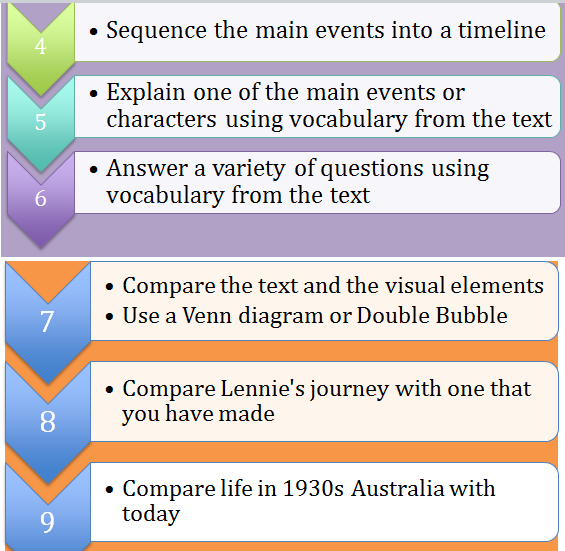Room 13 – Year 5
|
Plus + |
Minus – |
Interesting ! |
|
| Skills |
|
|
|
| Knowledge |
|
|
|
| Way of working |
|
|
|
| Final Event |
|
|
|
| Other |
|
|
Room 14 – Year 5/6
|
Plus + |
Minus – |
Interesting ! |
|
| Skills |
Intro to Inquiry was a useful starting point
|
Using Cornell note taking system researching skills |
|
| Knowledge |
Time line / places Learnt new info/facts |
||
| Way of working |
Use other resources besides the internet when researching All team members contributing Parent and student engagement Enthusiasm |
Creativity involved – great! | |
| Final Event |
Placement of stalls Props and decorations intriguing Dances / performances Something worthwhile to share Costumes were appealing Interactivity |
Tiring for presenters: perhaps a seat! All members not contributing equally Water bottle for voice Some leaving stalls Some visited interested only in food Amounts of available food Allergies / provide ingredient list Some stalls = limited information Audience were sometimes distracted: presenters to maintain engagement |
Don’t use food to necessarily attract others Lots of adults present Audience wanted more info on visuals, not typed up info Dances/performances Some audience members didn’t ask questions Limited feedback for some groups Ingredients in food items Year 7’s were providing useful feedback (as observers) Some Year 7’s weren’t fulfilling their roles
|
| Other | Extended learning after event – own will |
Room 12 – Year 5
|
Plus + |
Minus – |
Interesting ! |
|
| Skills |
People learning dances How to say hello, speak in different languages Creating the stall
|
Learning about all the different cultures Cornell Note taking Easy to choose a country |
|
| Knowledge |
Interesting information Good to learn about all the different cultures All the different languages |
More access to technology to research – iPads | Learning how people act when greeted |
| Way of working |
Everyone got a chance to display Great feedback from staff, students and peers Working with others to find interesting facts |
split the groups up more evenly Choose a country of your choice Choose a country that your family is not connected to Choosing parts More practice time – whole team/ group |
|
| Final Event |
Different foods The beautiful costumes How information was presented – pictures How people came to our stall – audience |
only came to get food – didn’t learn anything (took food) Games just to win lollies Reaction of audience to ingredients in food was a bit rude (black pudding, cold roll) Lolly jar – created too much excitement – wanted to open Noisy Food was a distraction from information More set up time – rushed to get ready Food allergies taken into account – permission? Feedback from year sevens – explaining to year seven took one member away from the group More space for the stalls |
Each stall different – Interesting, colourful Yuta – names in Japanese Learnt how to say hello in different languages
Different clothing worn Easy to get rid of all the food – everyone wanted to try some |
| Other |


